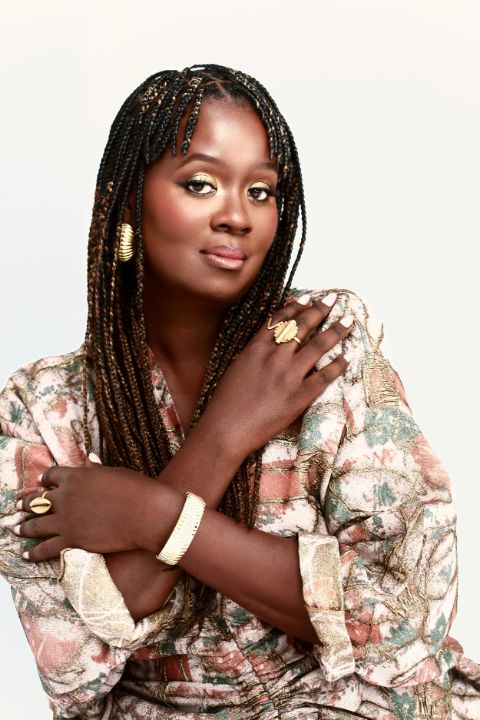Somi: Re-Imagining Miriam Makeba
Concert
Tue., 18.11.2025
20:00
Miriam Makeba Auditorium
€20/16

Somi. Photo: Ivan Mugemanyi
In no particular order, Haus der Kulturen der Welt (HKW) is presenting artists who have changed worlds—visionaries who have been anchored in people’s collective consciousness across generations, setting trends as musicians while also leaving their mark as political role models and leaders. One such act is singer and political activist Miriam Makeba, the namesake of HKW’s largest and most beautiful event hall: the Miriam Makeba Auditorium, with its 1,056 seats, excellent acoustics, and a stage that can accommodate a 100-piece orchestra. This is where New York-based musician Somi will be paying tribute to Makeba’s unparalleled output with Re-Imagining Miriam Makeba.
The singer, composer, and actress Somi created this programme in honour of Makeba years ago, and its final performance coincides meaningfully with its setting in the Miriam Makeba Auditorium at HKW. Somi Kakoma, known in the jazz world simply by her first name, was born in Illinois, where her parents had migrated from Rwanda and Uganda. She became interested in the musical connections between Africa and America at an early age, an interest nurtured by her mentor Hugh Masekela. Somi went on to become a Grammy-nominated musician, an acclaimed Broadway performer, and a playwright.
In her performance, Somi revisits the music of Makeba through her own artistic lens, blending jazz, soul, and African musical traditions to highlight the political and emotional range of Makeba’s work. The performance draws from Somi’s 2022 album Zenzile: The Reimagination of Miriam Makeba while expanding on its themes of lineage, voice, and artistic inheritance. It celebrates Makeba’s role as an artist-activist who transformed music into a form of resistance, and situates Somi within a continuum of women whose work bridges continents and histories.
Makeba, whose legacy Somi pays tribute to, was born in 1932 in Johannesburg and rose from local choirs to international acclaim in the 1950s. Exiled under apartheid, she became a global voice for freedom with hits such as ‘Pata Pata’ and ‘Malaika’ and a powerful advocate for racial justice. Throughout her career, she united music and activism, inspiring generations until her death in 2008 after a benefit concert in Italy.